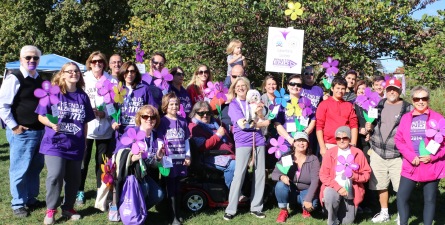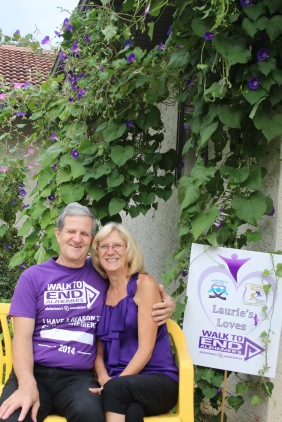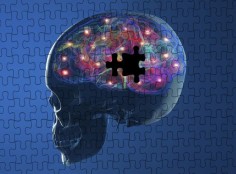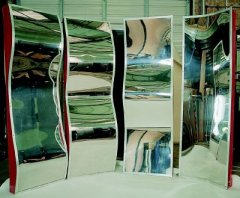People frequently ask how I adjust for the challenges caused with increasing symptoms. No longer being able to multitask, getting confused following directions and lack of focus, does often make it difficult to maintain a house and have some social activities. Sometimes it seems like we no sooner resolve one issue than another pops up.
Roy and I don’t accept the fact that I CAN’T do things anymore. Instead, we try to review each challenge, figure out what the obstacle is and find a way to adjust to make it happen.
Some of the adjustments we have made are so simple and so convenient that some our friends (who don’t have dementia) decided to use these techniques as well. I’m going to start with two affordable Hooks that have helped eliminate some Dementia Daze.
Loosing Keys:
People often tell me they loose their keys all the time. I did too. Except . . . with dementia, we tend to try to put EVERYTHING in a “SAFE Place”! In my case the “Safe Place” was ANYWHERE – – generally the freezer, in back of the cleaning supplies or in the safe, which is also where I put eggs, milk, remotes, etc.. Once we learned where my head thought was a “Safe Place” we knew where to look, until my head decided it found a new “Safe Place”.
Obstacle #1: Finding the keys.
The best way to find the keys is never to lose them. As with most women, I rarely leave the house without my purse. After deciding the best place to keep my keys was with my purse, we attached a hook onto my purse that holds my keys. I am happy now to say, I have not lost my keys in over 6 months! They never leave my purse. With the hook, I can easily move the keys from one purse to another. The hook and key holder are long enough that while my purse is on my arm, I can reach the door to lock it, sturdy enough that it is not going to fall off and small enough that I can slip it into my purse so only the end shows and it doesn’t get in my way. So the answer is: to never lose your keys!!! Keep them attached to your purse! Sorry men, I don’t have an answer for you.
Obstacle #2: The grocery cart and the grocery bags.
As many people with dementia, I have lost my ability to filter sound. Voices become amplified as though I am in a cave. When shopping, noise is everywhere, baby crying, kids running, people talking, carts banging – – chaos!
Moved the creamer – – track it down – – Whew! Finally done – – Go to the checkout – – – Five people in line – – Noise intensifying – – coming from every angle – – Can’t think, sounds like everyone is speaking through a boom box.
The one little outing that others take for granted, is often a tremendous undertaking. Because it creates such mental fatigue, I am usually unable to focus on anything else the rest of the day.
As with many things in our lives, my husband and I have found some tips to make grocery shopping easier me:
Shopping needs to be done before 10:00 in the morning Monday through Thursday when the store is less crowded. Always shop the same store – it reduces the confusion of finding things and becomes a familiar environment with familiar faces.
I am fortunate to live near Giant Food Stores in Gilbertsville. The manager and employees are WONDERFUL! Rebecca in customer service is always smiling. The gentleman at the fish counter, the young man who helps bag the groceries, the women at the checkout and even the man who collects the carts – they don’t know me and I don’t know their names, but they are all familiar faces and make me feel comfortable. More than once when I asked where to find an item, rather than saying an aisle number – they took me to it! Wow! That is such a help.
After a few times of loosing my purse and walking off with someone else’s cart, we came up with a simple solution to keep my cart and purse together. So far it’s worked great!
I made the below video to share with many of my dementia friends at Dementiamentors.org. I only hope all the Giant Gilbertsville Customers don’t find out and start using this idea – well, if so we will have to figure out a new strategy!
TIPS FOR GROCERY SHOPPING WITH DEMENTIA with LAURIE SCHERRER from Dementia Mentors on Vimeo.
Enjoy!
Love & Laughter,
Laurie


 e were so blessed last year with 29 people walking in our team “Laurie’s Loves”! What a fabulous show of support! Our goal was $2,500 – we raised $2,725!! I am hoping we can reach $3,000 this year. Thank you all so much for the love & support – by joining us on the walk or supporting our efforts with a contribution!
e were so blessed last year with 29 people walking in our team “Laurie’s Loves”! What a fabulous show of support! Our goal was $2,500 – we raised $2,725!! I am hoping we can reach $3,000 this year. Thank you all so much for the love & support – by joining us on the walk or supporting our efforts with a contribution! y walk page and mail it with your check
y walk page and mail it with your check different ways, often pulling files of “things we don’t do” from the back of our brain. Some PWD (Persons with Dementia) get angry, some cry. Some develop inappropriate sexual behaviors and some become violent. Some have trouble with balance and others have trouble with perception. Some drift off to a far away place, while others get stuck in the past. Some symptoms progress quickly and others are gradual. All symptoms eat away at a part of our memory and our past.
different ways, often pulling files of “things we don’t do” from the back of our brain. Some PWD (Persons with Dementia) get angry, some cry. Some develop inappropriate sexual behaviors and some become violent. Some have trouble with balance and others have trouble with perception. Some drift off to a far away place, while others get stuck in the past. Some symptoms progress quickly and others are gradual. All symptoms eat away at a part of our memory and our past. Dementia is kind of like a really bad experience doing all these things at once. If you take all these feelings and put them together at one time, that is how dementia feels on a bad day.
Dementia is kind of like a really bad experience doing all these things at once. If you take all these feelings and put them together at one time, that is how dementia feels on a bad day. ing my freedom to get into the car and go & do whatever/whenever. I wept for the lost memories that now are only photographs to me. I wept for the financial burdens this has brought. I wept for my family and the changes they will have to make and the challenges they will have to endure.
ing my freedom to get into the car and go & do whatever/whenever. I wept for the lost memories that now are only photographs to me. I wept for the financial burdens this has brought. I wept for my family and the changes they will have to make and the challenges they will have to endure. me of these things. However; with each “adventure” I have to weigh the consequences. Take for example a simple trip to that mega superstore that we all hate but seem to flock back to. For me the confusion begins the minute I exit the car. Walk through the sliding doors someone’s collecting carts and jamming them together with a clatter, clatter, bang, bang. A child is screaming, a couple fighting, someone stocking shelves, person in front of me blocking the aisle while on her cell talking about an affair. Noise, noise everywhere! Voices become amplified as though I am in a cave. Concentrate, just follow the list. Out of dog treats – pick a different one. Moved the tuna – track it down. Chicken won’t be done for 30 minutes – what else can I get for dinner. That means redoing the menu. OK, what do I need? Noise everywhere, baby crying, kids running, people talking, carts banging. Aisles are closing in. Someone I know, oh help! Talking fast – I hear them, but the words are not connecting. Boxes on the floor, carts in the pathway, chatter, noise – chaos! Whew! Finally done. Double-check the list. Go to the checkout – one lane open, 8 people in line. Noise intensifying – coming from every angle. Can’t think, getting stressed, sounds like everyone is speaking through a boom box. Do they know how loud they are? Need to get out of here! The outcome of an adventure to me often results in such mental fatigue that it takes me days to come out of the fog. The one little outing that others take for granted, is often a tremendous undertaking for me. So yes, please continue to invite us to participate in events; but understand there are times the answer has to be no and there are times we will say yes and at the last minute can’t make it. This is my life and Roy & I are making the best of every day – some times that means staying home is the best option.
me of these things. However; with each “adventure” I have to weigh the consequences. Take for example a simple trip to that mega superstore that we all hate but seem to flock back to. For me the confusion begins the minute I exit the car. Walk through the sliding doors someone’s collecting carts and jamming them together with a clatter, clatter, bang, bang. A child is screaming, a couple fighting, someone stocking shelves, person in front of me blocking the aisle while on her cell talking about an affair. Noise, noise everywhere! Voices become amplified as though I am in a cave. Concentrate, just follow the list. Out of dog treats – pick a different one. Moved the tuna – track it down. Chicken won’t be done for 30 minutes – what else can I get for dinner. That means redoing the menu. OK, what do I need? Noise everywhere, baby crying, kids running, people talking, carts banging. Aisles are closing in. Someone I know, oh help! Talking fast – I hear them, but the words are not connecting. Boxes on the floor, carts in the pathway, chatter, noise – chaos! Whew! Finally done. Double-check the list. Go to the checkout – one lane open, 8 people in line. Noise intensifying – coming from every angle. Can’t think, getting stressed, sounds like everyone is speaking through a boom box. Do they know how loud they are? Need to get out of here! The outcome of an adventure to me often results in such mental fatigue that it takes me days to come out of the fog. The one little outing that others take for granted, is often a tremendous undertaking for me. So yes, please continue to invite us to participate in events; but understand there are times the answer has to be no and there are times we will say yes and at the last minute can’t make it. This is my life and Roy & I are making the best of every day – some times that means staying home is the best option.

